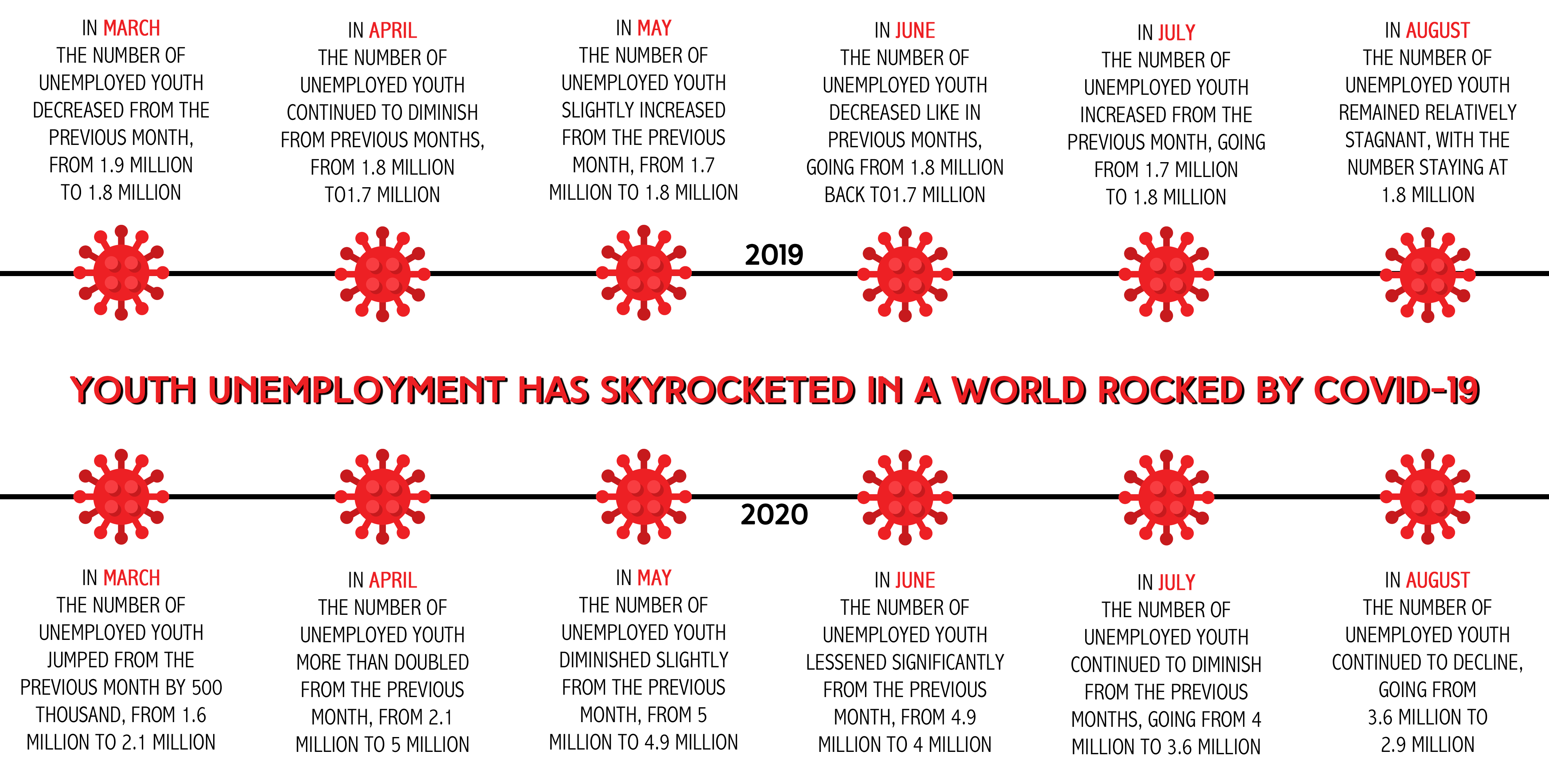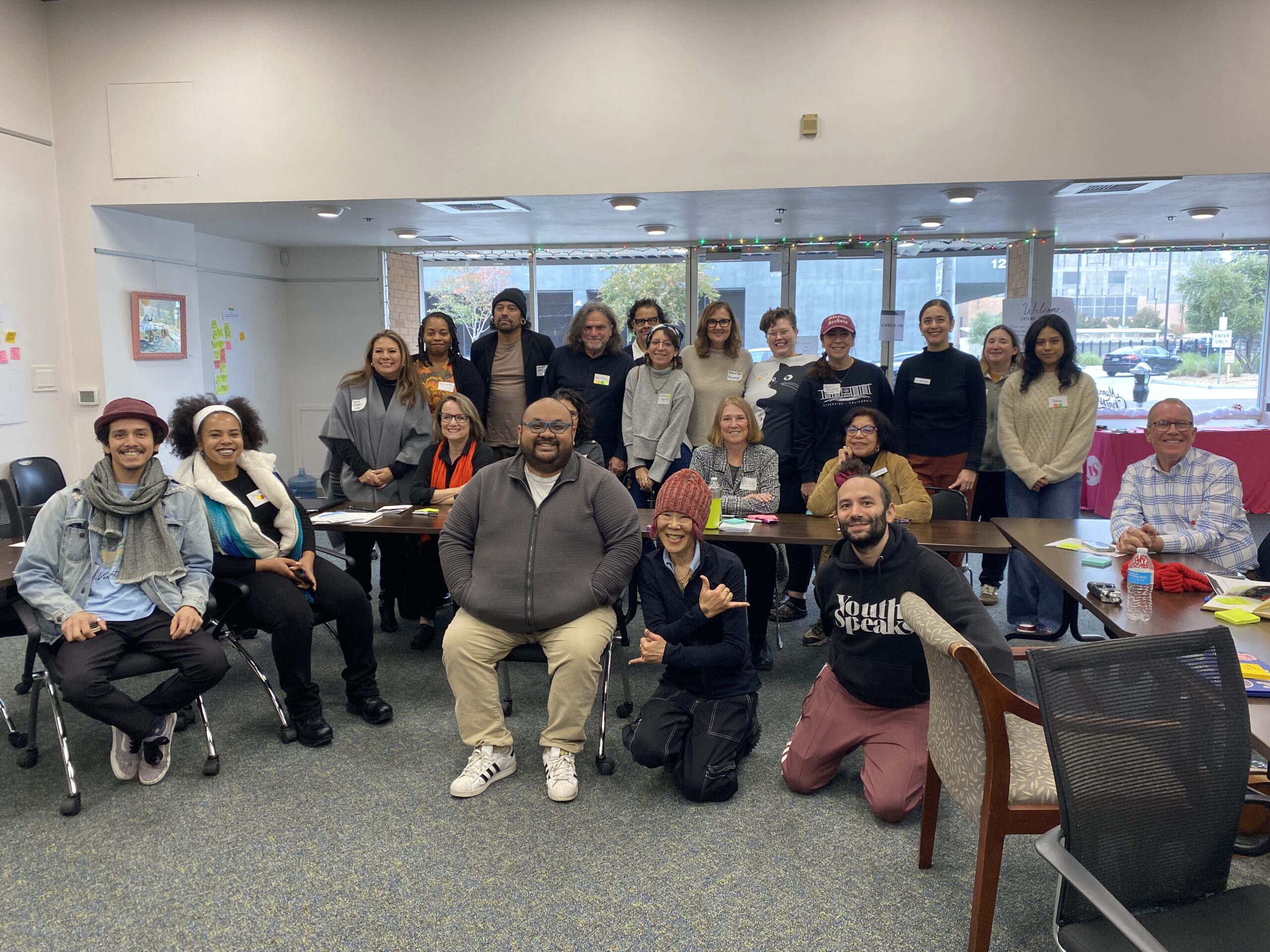
The year 2020 has been an extremely challenging year, largely due to the COVID-19 pandemic. While the results have been devastating, it can also be credited to exposing the many insufficiencies of the systems and structures that govern our lives. Jobs and career opportunities have been greatly affected, with new openings becoming scarce and pay rates and safety being unsupported for essential workers.
Essential workers are largely youth between the ages of 16 to 24 who are taking up minimum wage jobs as a means to support their immediate families or aid in getting them through college.
According to the U.S. Bureau of Labor Statistics in April 2019, the number of unemployed youth continued to decrease from the previous month falling to 1.7 million. One year later and the differences are striking. COVID-19 spiked in March, and by April unemployment rates more than doubled from 2.1 million to 5 million.
In the height of the pandemic, businesses began shutting down in response to the severity of the virus, leaving millions of people with career uncertainties. Meanwhile, a percentage of businesses deemed vital to society continued to stay open, swiftly being marketed as “essential” businesses.
America is a capitalist society at the end of the day. Labor and corporate businesses must continue to operate in order for the economy to sustain itself. The question that COVID-19 presents is whether the economy or the health and wellbeing of our people should be prioritized. This very question lingers on the minds of millions of young essential workers and unemployed youth.
While safety and sanitization guidelines are enforced at these open businesses, the staffing support systems have been lackluster and obsolete. Many complaints of Human Resources not handling potential violations of safety guidelines have arisen, which has led to many young employees feeling like they still don’t matter enough, even during a pandemic.
The mental and emotional turmoil of living during a time like this also weighs heavily, and the individual questionings of whether or not it’s worth it to work in 2020 is legitimate and valid. However, the struggling grip of having to sacrifice financial stability for peace of mind puts many in a sticky situation.
For those who lost their jobs during this time, finding opportunities to get back into the workforce are second to none. New job postings have largely diminished, increasing stress during application hunts and creating even more competitive grounds for hiring. Job requirements have also not shifted during this period, which continues to enforce barriers for prospective hires.
Just as the future is uncertain for society as a collective, the same can be said for those of us who are looking for a new job; it might be a while before we find one.
Unemployment payments have increased in response to the pandemic to help people make ends meet. According to the California Employment Development Department, the state is now participating in the Lost Wages Assistance Program, a program that will provide an additional $300 per week for people who receive at least $100 in weekly benefits should they qualify.
This has created a divisive response amongst the essential and the unemployed. Those who are still working are wondering why they don’t make as much as someone sitting at home. The unemployed are wondering why the essentials are complaining, at least they still have a job.
This back and forth blame game is pointless. Neither side is in the wrong, both are just products of a system that has failed to support them. The unemployed were blindsided and now have to make difficult accommodations with benefits that barely support, and the essentials are actually just the exploited. The real enemy here is capitalism, and now more than ever we are facing the reality of just how wrong we’ve been done.
America was not ready for this, and leadership downplayed the severity of COVID-19 the moment infection rates were deemed concerning. Now here we are, struggling to find a steady job, experiencing financial struggle, and having to make the crippling decisions surrounding personal health and life against financial support and productivity.
Something has to be done, asks have to be made. Most of all, now is not the time to be divided. We have to come together and exercise our voices. We need more opportunities, there needs to be better accommodation for essential work, hazard pay, hazard raises or bonuses.
We also need to eliminate the idea of “essential workers.” All jobs are essential and vital to the livelihood of our people and contribute to sustaining the economy. Coining this term has only incited division among people through their career status and professions. Instead, we need to focus on incentives for those who are working.
Hazard pay and bonuses are crucial for those risking their health to support themselves during these unprecedented times. Employees also need an increase in sick time to cushion any chances of infection and recovery time. It is through these benefits employees can start to feel supported – and there is no reason they should feel otherwise. The United States has put in a lot of energy to market workers as important, it’s time to start treating them as such.


